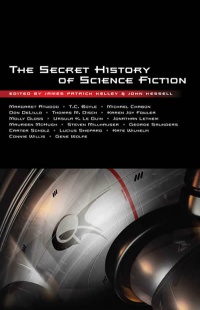We work to make the many worlds better.
There. That’s the official line.
Title: Transition
Author: Iain M. Banks
Year: 2009
Rating: 3 out of 5 stars
 At first glance, the latest novel from Banks is a conspiracy thriller set against the context of a familiar science fiction concept: the existence of a multiverse containing infinite versions of reality. Within this multiverse (of which our own Earth is but one infinitesimal piece) operates a shadowy group called the Concern, which seeks to manipulate specific events in the many worlds in order to influence the direction of their societies. The Concern’s agents (assassins, very often) are able to flit, or transition, between worlds by taking over local bodies, and few of them ever question the organization’s assertion that what they do is all for the greater good, a mission of philanthropy. But there are those who don’t buy the official line, leading the reader to the inevitable question: what’s the Concern really up to?
At first glance, the latest novel from Banks is a conspiracy thriller set against the context of a familiar science fiction concept: the existence of a multiverse containing infinite versions of reality. Within this multiverse (of which our own Earth is but one infinitesimal piece) operates a shadowy group called the Concern, which seeks to manipulate specific events in the many worlds in order to influence the direction of their societies. The Concern’s agents (assassins, very often) are able to flit, or transition, between worlds by taking over local bodies, and few of them ever question the organization’s assertion that what they do is all for the greater good, a mission of philanthropy. But there are those who don’t buy the official line, leading the reader to the inevitable question: what’s the Concern really up to?
However, perhaps a second glance is advisable. If you take Transition at face value you’re likely to be disappointed. As a straightforward sf novel it leaves a lot to be desired. Approached primarily on the level of plot and resolution of the conflict, it may leave you wondering just what the point was. But then, there’s much to suggest that it’s not meant to be straightforward at all. Banks doesn’t approach this multiverse idea in anything like a science fictional manner. There’s no attempt at a scientific underpinning — no discussion of physics or mathematics or cosmology, no exotic theories to invest the concept with plausibility. In fact there’s nothing distinguishing this multiverse from the way it might be used in a fantasy setting (for instance, the “shadows” of Zelazny’s Amber series, which this reminds me of in some ways). Transition might best be described by the term “slipstream” — that vaguely-defined variety of literature blurring the lines between speculative and mainstream fiction. Which is fitting, since apparently one of the motivations for this book was to bridge the divide between Banks’ two alter egos — the Iain with the “M” and the Iain without. In the words of Bruce Sterling, slipstream “makes you feel very strange,” and by that criteria the book definitely merits the label.
Indeed, this novel is so strange that by the time you’re finished reading it, you’ll find yourself questioning whether the multiverse presented therein actually existed or not. But don’t feel too bad. Even one of the main characters — a transitioner himself — can’t decide:
And I accept that all that happened happened, and I accept my part in it. I accept, too, that it is over, and that still the most rational explanation is that none of it happened, that I made it all up….
There’s a heavy philosophical slant to this book. There’s much reference to solipsism and the possibility that we create our own reality. This is conveyed by the metaphor of the magnifying glass: just as it gathers light from a certain radius and focuses it to a point, so we suck meaning from our surroundings and focus it in our own consciousness, using it for our own (usually selfish) ends — creating what is important to us while disallowing what is not. In fact Transition has a lot to say about human selfishness and our tendency to see ourselves as the center of existence, to the exclusion of everything else (especially to the exclusion of anything that might challenge our supremacy). Going along with this is the fact that we’ve encountered no alien life; Banks presents us with the strange thought that maybe this is so because we’ve created a universe in our own image, and we don’t want any competitors. Of course, this isn’t going to persuade those of us who believe in an objective reality to change our views, but it is fun to think about such weird ideas. This book would make great reading and discussion in a philosophy class.
Transition is also very political, and has some very pointed criticism of Anglo-American behavior after 9-11 regarding the “War on Terror” and particularly the use of torture. (A warning to the squeamish: torture and inventive methods for killing people play a rather prominent role in the story. I thought the death by induction heating was brilliant — and horrifying.) Going along with the selfishness theme, the book also takes a few swipes at certain aspects of capitalism (our world is one of a whole category of realities the Concern labels “Greedist worlds”). Also up for criticism is the ever-increasing concentration of authority in leaders who simply take new powers for themselves. The book’s main villain is shameless in this regard, and obviously shares this trait with America’s former president.
All in all, a very unusual book, but one worth reading for those with enough imagination to be open to some bizarre perspectives. It’ll certainly give you some of those to ponder, and that’s almost never a bad thing.














